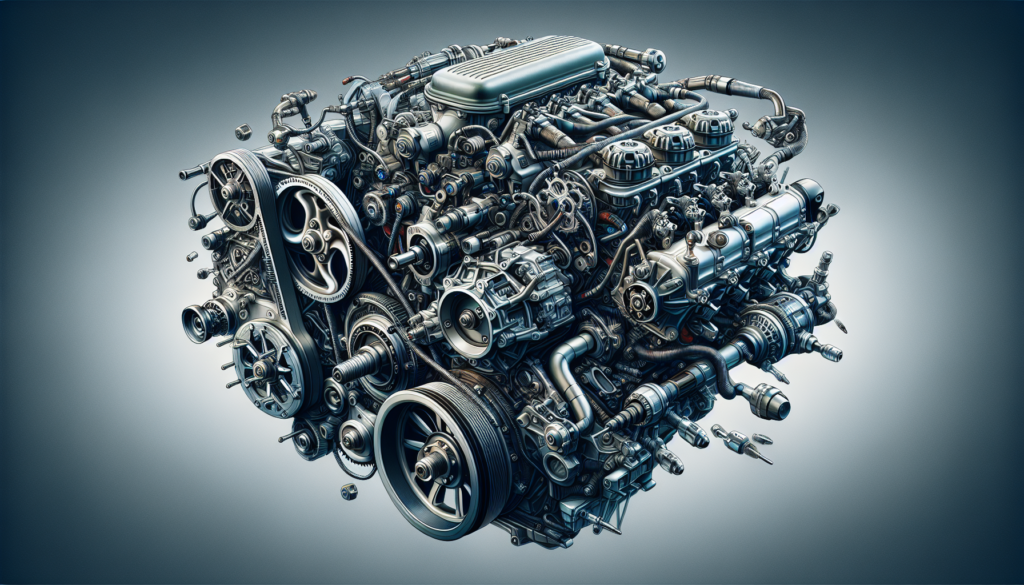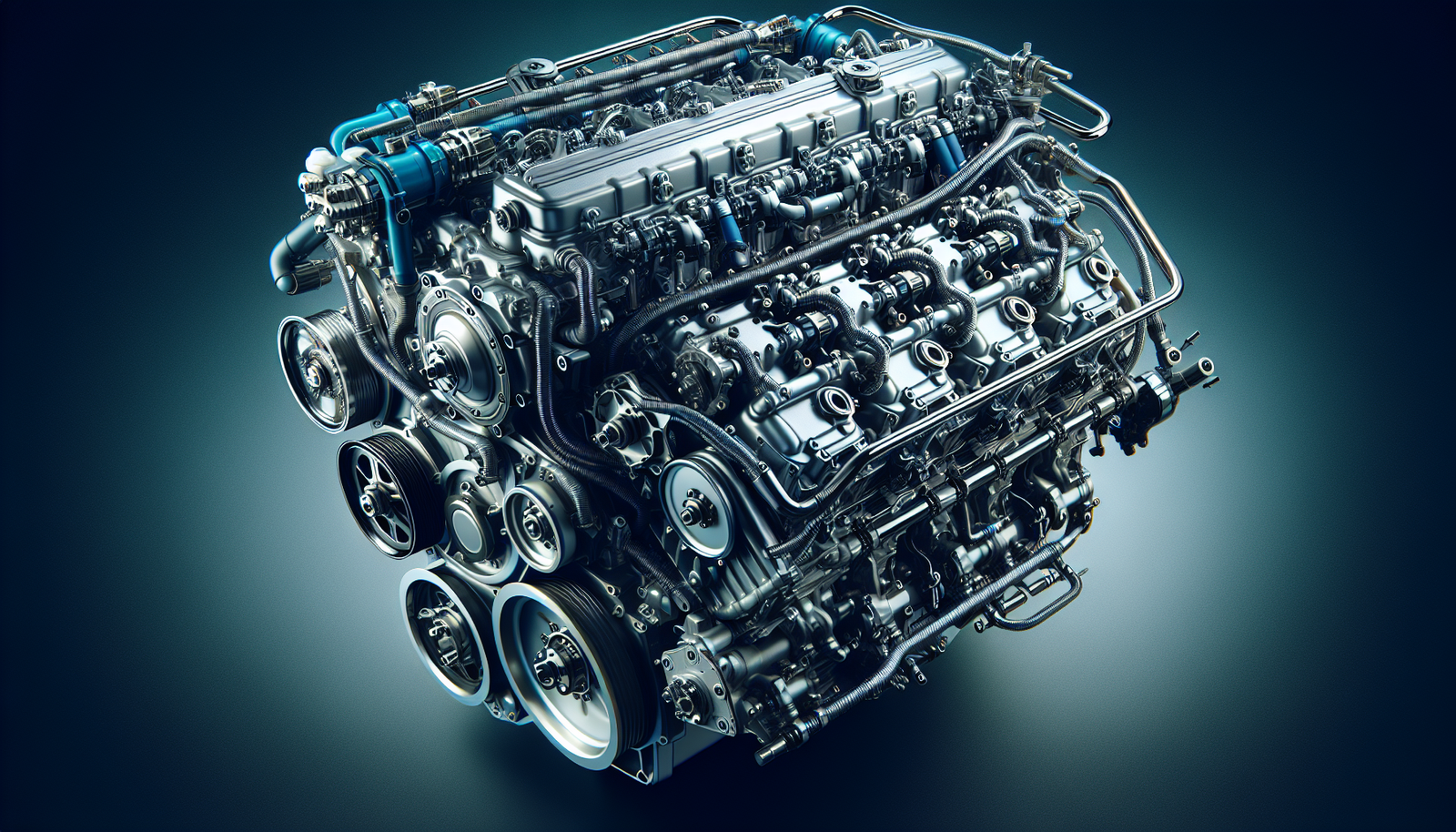As you feel the excitement for the new boating season, it’s crucial not to forget the importance of pre-season boat engine maintenance. The “Quick Checklist For Pre-Season Boat Engine Maintenance” is a comprehensive guide that breaks down the essential tasks for you. Not only will this keep your vessel ready for those sunny day sails, but it will also extend the lifespan of your boat’s engine. This article is brimming with practical advice, providing you with top-to-bottom insights on ensuring your craft is seaworthy and all set for salt or freshwater adventures.

Understanding the Importance of Pre-Season Boat Engine Maintenance
Just as you wouldn’t start off on a road trip without first checking your car’s fluid levels and tire pressure, you shouldn’t head out for the boating season without performing a pre-season checkup on your boat’s engine. Boating season is a time of fun and relaxation, and nothing can interrupt that quicker than engine trouble out on the water.
Reasons why engine servicing is fundamental
Boat engines, like all mechanical systems, experience wear and tear over time. Engine parts can wear down, get dirty, or even break completely. Regular servicing not only ensures that all parts and systems are functioning efficiently but also helps detect and fix problems early, potentially saving you significant time and cost in the long run.
Potential risks of neglecting pre-season maintenance
Neglecting pre-season maintenance can lead to a variety of problems, ranging from minor annoyances to major disasters. These can include things like inefficient fuel consumption, engine overheating, or even a broken-down boat stranded out to sea. Regular maintenance can prevent these issues and offer you peace of mind as you enjoy your time out on the water.
Checking the Boat’s Fuel System
A key component of your engine’s maintenance checks is the boat’s fuel system. The three primary aspects to assess are the fuel lines, fuel tanks, and fuel filters.
Assessing the fuel lines for leaks or damage
Begin with a careful inspection of your fuel lines. Look for signs of wear, brittleness, or cracks, and pay special attention to connection points. Any damage could lead to fuel leaking into the bilge, creating a fire hazard. Replace any damaged fuel lines immediately.
Inspecting the fuel tanks
The next step is to check your fuel tanks. Look for any visible signs of damage or corrosion. Don’t forget to check your tank’s vent to ensure it’s not blocked, which could lead to pressure building up inside the tank.
Examining the fuel filters for contaminants or moisture
Lastly, inspect your fuel filters. These should be checked for any build-up of contaminants or evidence of moisture, which could impair performance or cause more serious damage to the engine over time.
Evaluating the Belts, Cables, and Hoses
As part of your pre-season maintenance, you’ll want to inspect your boat’s belts, cables, and hoses as well. These might seem like minor components, but any failure here could lead to major engine trouble.
Methods to confirm belt tension and condition
A belt that’s too loose or too tight can cause issues with your engine’s operation. Check the belt’s tension, and replace it if you notice any cracks or fraying.
Identifying signs of wear on cables and hoses
Examine the cables and hoses for any signs of wear, such as cracks, stiffness, or brittleness. Identifying these signs early in the season can save you from sudden breakdowns during your outings.
Replacing deteriorated belts, cables, or hoses
If you spot any signs of wear or deterioration, replace these components immediately. Trying to stretch the life of a worn belt, cable, or hose can lead to unexpected and potentially expensive repairs.
Inspecting the Boat’s Electrical System
The electrical system is another critical aspect of your boat that requires pre-season checking.
Checking battery connections and charge
Start by examining the battery connections for corrosion, and ensure they are tight and secure. Also, check the battery charge to verify it’s at an optimum level.
Assessing bilge pumps and blowers functioning
Check your bilge pumps and blowers. These should be functioning properly to prevent water accumulation in the bilge and to ensure efficient ventilation.
Inspecting lighting, electronic equipment, and wiring
Finally, examine all lighting fixtures, electronic equipment, and wiring for any signs of damage or corrosion. Replace any damaged components to avoid any electrical hazards.

Running an Engine Oil Analysis
An oil analysis can provide a wealth of information about the health of your boat’s engine. It’s like a blood test for your engine, providing a snapshot of what’s happening inside the mechanical components.
Indicators for carrying out engine oil analysis
If your engine isn’t performing as expected or if you’re nearing the manufacturer’s recommended oil change interval, it might be time for an oil analysis.
How to perform an oil analysis
To do an oil analysis, you’ll need to take a sample of your engine oil and send it to a laboratory for testing. The results will provide a detailed breakdown of the oil’s properties and any contaminants present.
Interpreting oil analysis results
Understanding the results of an oil analysis requires some knowledge of what the various measures mean. Things like excessive metal particles can indicate wear in the engine, while high levels of certain contaminants could suggest coolant leaks or other issues.
Refresh the Cooling System
The cooling system is crucial for maintaining your boat’s engine at an optimal temperature, and it requires regular refreshment and maintenance.
Why your boat’s cooling system needs maintenance
Over time, the cooling system can accumulate contaminants, which can cause blockages or corrosion. Regular maintenance helps keep the system clean and operating efficiently.
Checking the coolant and refilling as required
Start by checking the coolant level and topping it off if necessary. Also, examine the coolant for any signs of contaminant build-up or discoloration.
Cleaning the raw water strainer
Another task is to clean the raw water strainer, which can collect debris like seaweed or plastic. A spotless strainer allows water to flow freely, improving the efficiency of your cooling system.
Inspecting the Propeller and Lower Unit
The condition of your propeller and lower unit dramatically affects the performance and efficiency of your boat out on the water.
Looking for signs of propeller damage
Inspect the propeller for any visible signs of damage, such as nicks, dings, or cracks. Any damage can affect your boat’s performance or cause vibration that can damage the drive train.
Ensuring propeller shaft is greased
Also, ensure the propeller shaft is well-greased to prevent corrosion and wear. This helps maintain the smooth operation of your propeller and prolongs its lifespan.
Checking lower unit for oil leaks
Lastly, check the lower unit for signs of oil leaks. Any seepages or drips could indicate a problem with your seals or gaskets.
Servicing the Engine Filters
The engine’s filters – specifically, the engine oil filter and the fuel filter – need to be checked and serviced regularly.
Assessing condition of engine oil filter
Inspect the condition of the engine oil filter. If it’s dirty or clogged, it’s time to replace it. A clean oil filter ensures that your engine oil is free of contaminants, keeping your engine running smoothly.
Evaluating condition of fuel filter
Similarly, check the condition of the fuel filter. It should be free of debris or moisture, which could impair performance or cause damage to the fuel system.
Replacing old or contaminated filters
If your filters show signs of contamination or are past their lifespan, replace them promptly. New filters improve the efficiency of your boat’s engine and extend its lifespan.
Maintaining the Bilge Pumps
Bilge pumps play a crucial role in maintaining safety on your boat. They help remove water from the bilge and prevent it from accumulating to dangerous levels.
Importance of bilge pumps in boat safety
Unexpected water in the bilge can be a serious hazard, potentially causing instability or even causing your boat to sink. A functioning bilge pump is essential in preventing such a scenario.
Methods to test bilge pump operation
To test your bilge pump, you can pour a bucket of water into the bilge and observe if the pump activates and drains the water successfully. If the bilge pump doesn’t start or drains the water slowly, it might be time for replacement or maintenance.
Signs bilge pump needs to be replaced
If your bilge pump frequently fails tests, has become unreliable, or is beyond its expected lifespan, it’s time for a replacement.
Key Takeaways for Maintaining Your Boat Engine Pre-Season
Pre-season boat engine maintenance is a preventative measure essential for a worry-free and enjoyable boating season. It helps you identify issues early, avoid unexpected breakdowns, and extend the lifespan of your boat’s engine.
Recap of essential pre-season boat engine maintenance steps
To recap, start with a thorough inspection of your fuel system, belts, cables, hoses, and electrical system. Check the tension and condition of your belts, search for any signs of wear and tear on your cables and hoses, and assess your battery connections and charge. Next, run an engine oil analysis, refresh your cooling system, and inspect your propeller and lower unit. Also, don’t overlook the importance of servicing your engine filters and maintaining your bilge pumps.
Importance of regular boat engine care and servicing
Preventing issues is always better and less costly than dealing with breakdowns. Regular boat engine care and servicing, including pre-season maintenance checks, can help reduce the risk of unexpected problems and breakdowns during boating season. It’s a small investment of time and effort that will pay off in the form of uninterrupted enjoyment of your outings at sea.

